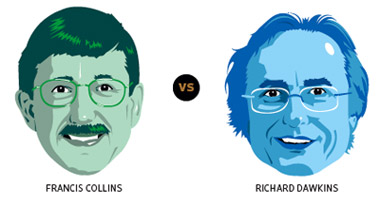What are fundamentalists protecting when they protest stem cell research? A three-day-old human embryo is a cluster of 150 cells, with no brain or nervous system, while the brain of a housefly consists of approximately 100,000 cells. More suffering is visited upon this world when you swat a housefly than when a three-day-old embryo is destroyed. And for this, we prevent a person with 3rd-degree burns covering her body from having new skin grown for her, or a leukemia patient, or paralyzed person from having a second chance. All for the sake of a blastocyst. What is the role of religion in this madness?
300,000 people across Africa die of AIDS every year. Most of those lives could be saved through the widespread use of condoms. And yet Catholic priests across Africa preach to their congregations that condom use is morally wrong. The priests therefore take at least some responsibility for preventable deaths. In the words of author Sam Harris, this is “genocidally stupid” behavior. What is the role of religion here? Is it helping or hindering humanity?
Harris has been on my mind all week. First a Newsweek article covering him and other influential atheists, The New Naysayers turned my head. Then I caught a 30-minute talk he gave to Pop-Tech 2005, The Future of Ideas (podcast). Found that so fascinating I also listened to a much more detailed, 90-minute version (MP3) of the talk I found via the Long Now Foundation.
What is it about religion that prompts us to “respect” others’ beliefs? How is it that a priest can become so convinced he can walk on water that he drowns trying, and still we consider religious beliefs beyond criticism in ways we don’t in any other field of human endeavor? Paraphrasing Harris: “If I stood in front of you and claimed that the Holocaust never happened, you would be under no obligation to respect my beliefs just because they’re my beliefs. You would demand proof. And, if I did a good enough job of proving my case, you would be expected to agree with me. But with religion, it’s different. People can make virtually any metaphysical claim they like, no matter how preposterous, and their beliefs will be ‘respected.’ Why? And more importantly, what kinds of harm does this intellectual double standard — this strange and irrational social acceptance of religion — inflict on societies? Why do even secularists and moderates respect religion, and where is this blind spot taking us?” (Harris speaks about this danger in all religions – he’s not on an anti-Christian jag).
I differ with Harris on this point of respect. Or maybe I just feel conflicted about it. There are religious people in my life for whom I hold tremendous respect, even though I can’t begin to understand their position, how they arrived at the point of religion. Because I know they’re rational, kind people, their religious beliefs don’t “diminish” them in my eyes in the slightest. I understand Harris’ point, but I also don’t feel tempted to stop respecting their beliefs.
Harris’ voice is calm and rational, yet he pulls no punches. He is compelling in ways many will not be prepared for. Those whose religious sensibilities are offended by intellectual challenge should steer clear, even though they undoubtedly would find clearings in the meadows Harris paints that they never expected to find.
I’ve been grappling with the question of whether I’m an atheist or agnostic for a decade, and with questions of faith on and off for a decade before that. Though some of Harris’ stuff is old ground, he covers so much territory, and covers it so well, that I find myself wondering whether it’s time to come to terms with the question once and for all.
What does it take to declare yourself an atheist? What kind of bravery does it require to put yourself so far outside the mainstream? How many people declare themselves agnostic rather than atheist because it’s less “offensive” to family and friends? Why is it that it’s almost impossible to imagine even the most warm, compassionate, ethical, intelligent atheist being elected to a public office? (“Even an openly homosexual candidate has a better chance of being elected to public office than an admitted atheist.”) Would an enlightened society be truly respecting of everyone else’s religious beliefs, or would it not have any?
Technorati Tags: atheism, religion


